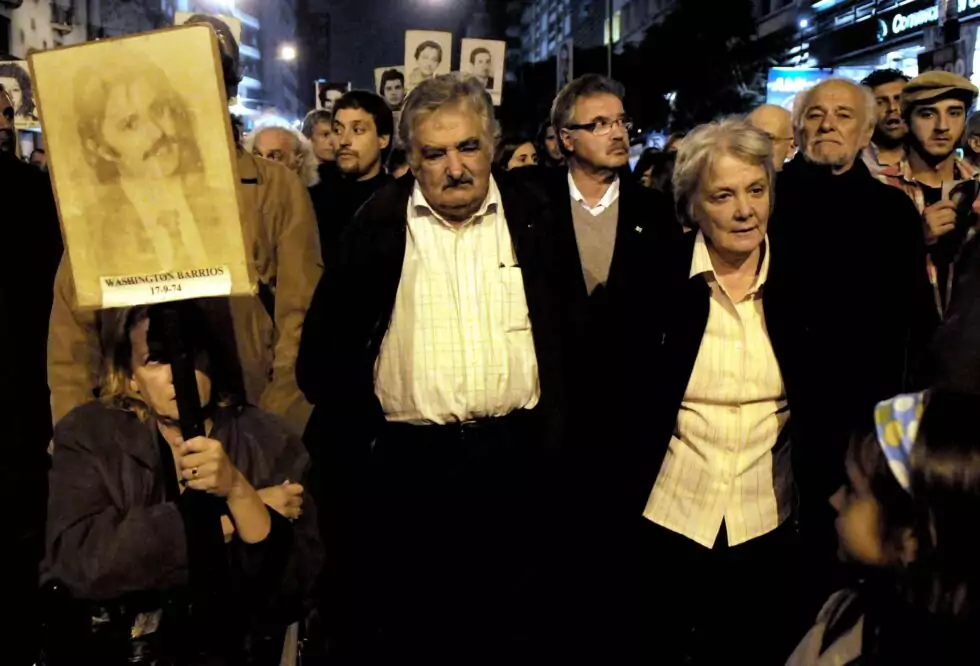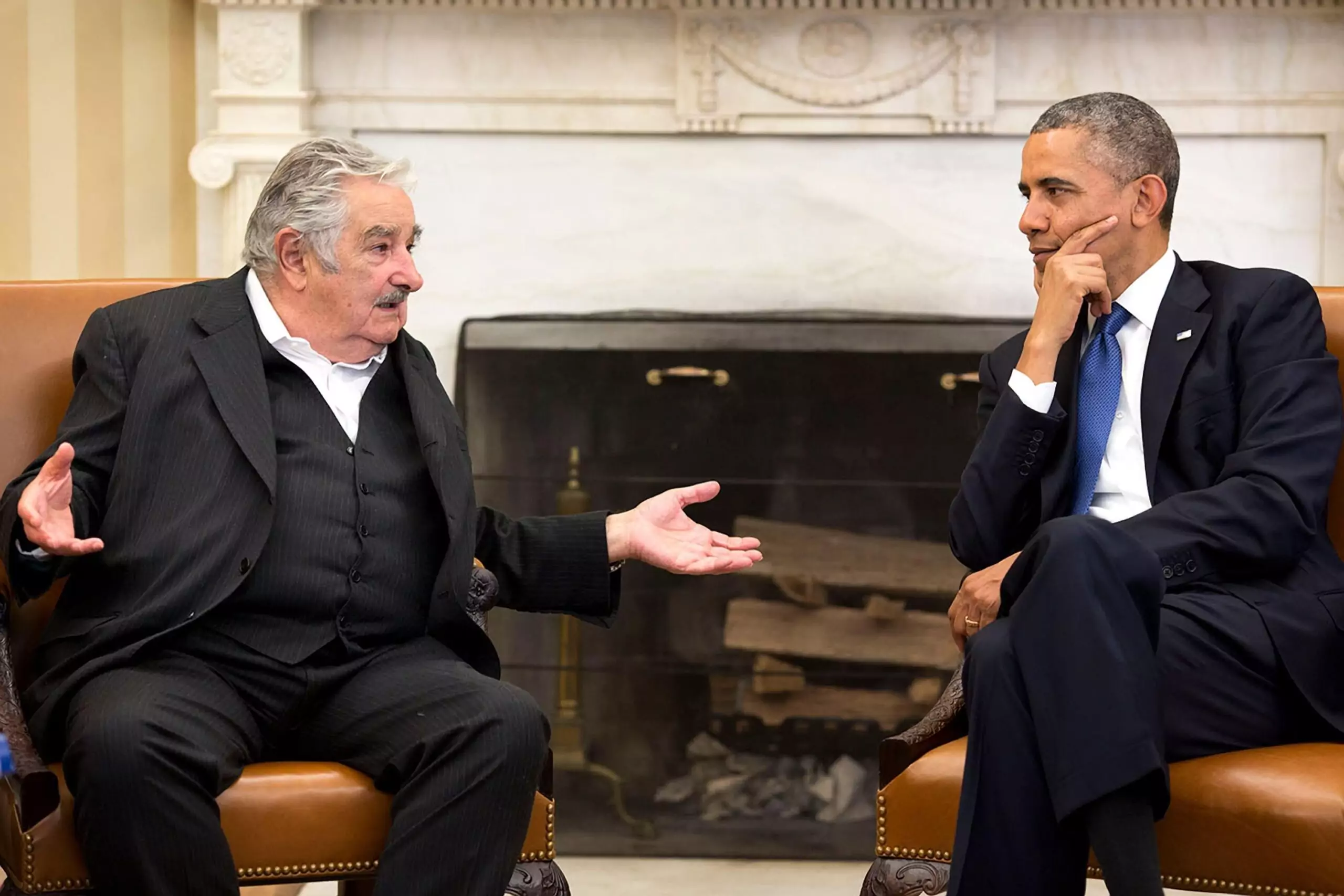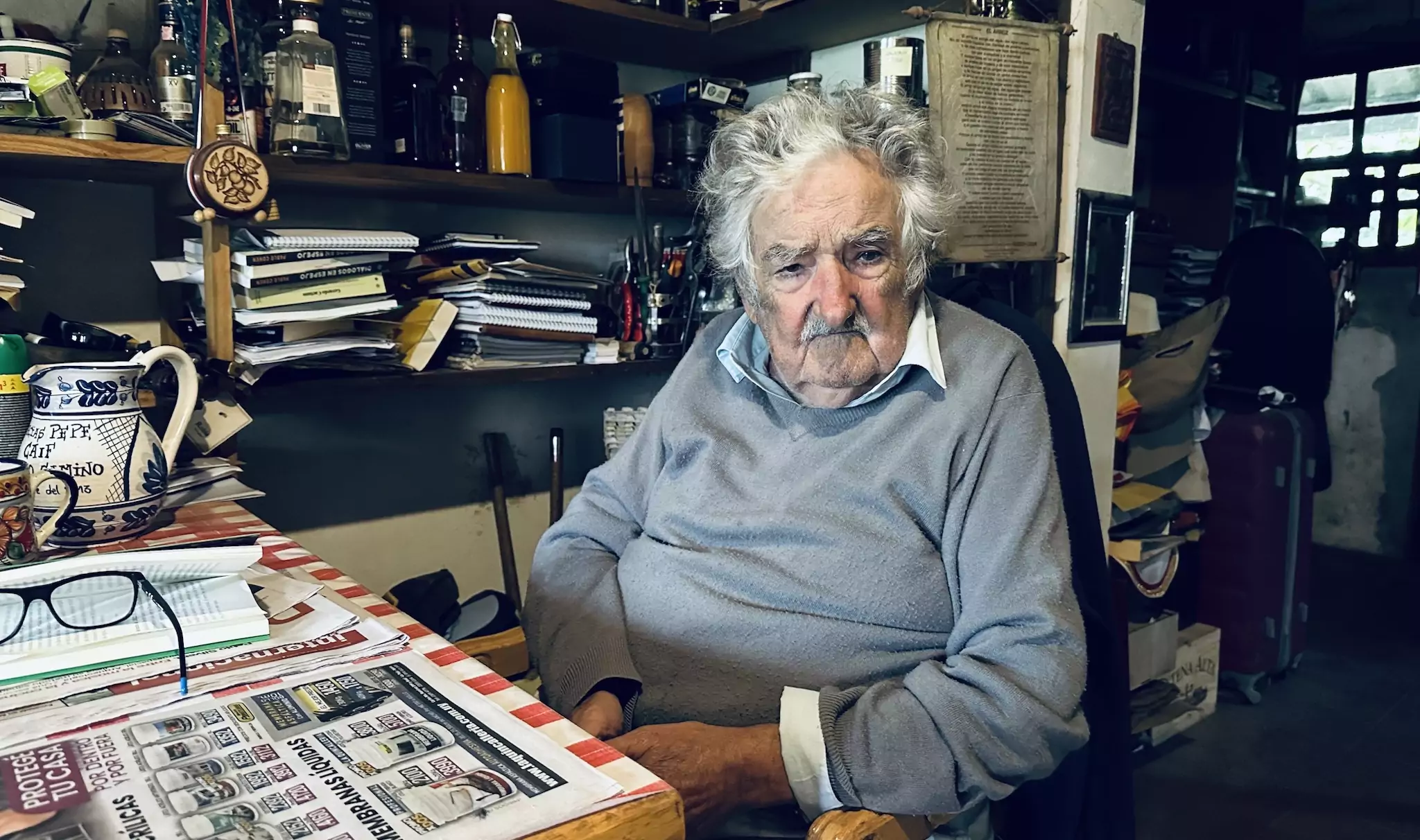By Dimitris Kouvaras,
When one thinks of world leaders, what often comes to mind are sumptuous residences, bulletproof cars, smart suits, and plethoric rhetoric. After all, the prestige of a presidential or prime-ministerial office is more often than not analogous to the amenities enjoyed by its holders. However, for former Uruguayan president Jose Mujica, such luxuries were not an integral part of the job but dispensable extravagances—something like the appealing packaging of a gift that is nonetheless useless after it is opened. Mujica, who earned worldwide recognition for his austere lifestyle and political reform, died earlier this month at the age of 89 after battling oesophageal cancer for about a year. Always sincere and unflinching in the face of his circumstances, he acknowledged the likelihood of his impending death in his final interview with Busqueda magazine. Widely loved in Uruguay, Mujica was accompanied to his resting place by thousands of mourners who gathered in Montevideo for a final farewell.
The tumultuous life of the former president, who was born in Montevideo in 1935, was as unconventional as his lifestyle. Politics drew Mujica in early, when he became a member of Uruguay’s National Party, engaging with the country’s traditional political spectrum. However, he was soon inspired by Marxist-Leninist ideas and the Cuban revolution of 1959, steering him towards a more radical political direction. In the 1960s, he helped establish the Tupamaros National Liberation Movement (MNL-T), a leftist urban guerrilla group that undertook subversive political action against the country’s democratic government, operating in a Robin Hood-like fashion. Wealth redistribution was the primary objective, often pursued through robbery; the group, however, soon escalated to forms of urban warfare, including assaults, kidnappings, and executions. Mujica paid a heavy price for his radical undertakings—he was imprisoned on multiple occasions, yet managed to escape twice, once with 105 other MLN-T prisoners. Grimmer years followed during the military-imposed dictatorship of 1973-1985, which found Mujica once again in prison, often subjected to torture and solitary confinement that left deep psychological scars. However, the fall of the regime led to his release and opened the way to democratic politics.

After founding the Movement for Political Participation (MPP) in 1989 and being elected to both the Chamber of Representatives and the Senate, Mujica rose to the position of minister with Uruguay’s leftist coalition in 2005, later becoming president in 2010—a time when numerous Latin American countries, including Brazil and Venezuela, were experiencing a leftist political turn. During his term in office, “Pepe”, as he was affectionately called by Uruguayans, managed to bring himself and his country of 3.4 million into the international spotlight through a series of bold political and legislative reforms. Between 2010 and 2015, the Uruguayan economy achieved consistent growth at a staggering annual rate of more than 5%, while living standards improved and unemployment remained in check. Sustainable development was also promoted, with Uruguay emerging as a leader in clean energy. Mujica’s presidency cemented the country’s transformation into a robust liberal democracy, as same-sex marriage and abortion were both legalised, ensuring enhanced protection of human rights. Also making headlines was the legalisation of marijuana for recreational use, a measure designed to regulate a market previously dominated by drug cartels.
Although not immune to criticism and shortcomings—such as underperformance in educational reforms and the creation of budget deficits due to increased public spending— Mujica’s rule is remembered as genuinely democratic and transparent, devoid of corruption charges. However, the defining feature that made him recognisable worldwide was his simple way of life, whyich led to him being branded the world’s “poorest president”. Mujica dressed casually, continued driving his 1987 Volkswagen Beetle while in office, and chose to remain in his farmhouse rather than move into the presidential residence, embracing an austere modus vivendi unlike that of any other leader. As a testament to his integrity, he also donated a large portion of his salary. When asked about his supposed “poverty”, he rejected the label, stating, “Poor are those who want more […] because they are in an endless race”. In his discourse, temperance appears as a remedy to insatiable material ambition.

I believe that this lifestyle is what drew so much attention to Pepe’s figure, especially from Western media and audiences, and what is ultimately worth reflecting upon. His unpolished appearance—one that some may find repulsive or at least disproportionate to his office—stands in stark contrast to the obsession with appearance that dominates Western culture. This fixation is especially endemic among those seeking to project social status, from politicians to TikTok influencers. Today, perhaps more than ever, due to higher living standards, the pervasive influence of social media, and the unprecedented diffusion of popular trends—from luxury brands to bucket-list holiday destinations—material possessions define our lives and statuses to a great extent. They serve as tools for reaffirming, creating, and projecting identity and as avenues for self-validation. While not entirely negative, this trend is at least partly responsible for problematic phenomena, from overconsumption to personal insecurities, inferiority complexes, and the social misjudgment of worth based solely on material status or appearance. Jose Mujica’s example stands in opposition to all of this, and it is his “exotic” asceticism—besides his impactful political achievements—that continues to draw people’s attention.
However, his austerity must be taken more seriously than as a mere source of attention-grabbing labels like “the poorest president in the world”. Not in the sense that every president—or each of us—must become ascetic and move into a farmhouse, but in the sense that worth and status are not, and should not be, dependent on material possessions alone. Especially in the world of politics, where extravagance in various forms plays a large role in shaping public perception, this counterexample is essential to understanding how we might prioritise tangible achievements over hollow appearances. Irrespective of his tumultuous past, Mujica’s authenticity is what made him stand out—and what could serve as a model for many. One should be valued not for where they live or what they wear, but for who they are and what they do.
References
- Mourners from all corners of Uruguay bid farewell to iconic former President José Mujica. Associated Press. Available here
- José ‘Pepe’ Mujica, former guerrilla and ex-president of Uruguay, dies aged 89. The Guardian. Available here
- Uruguay’s José Mujica, world’s ‘poorest president’, dies. BBC. Available here




